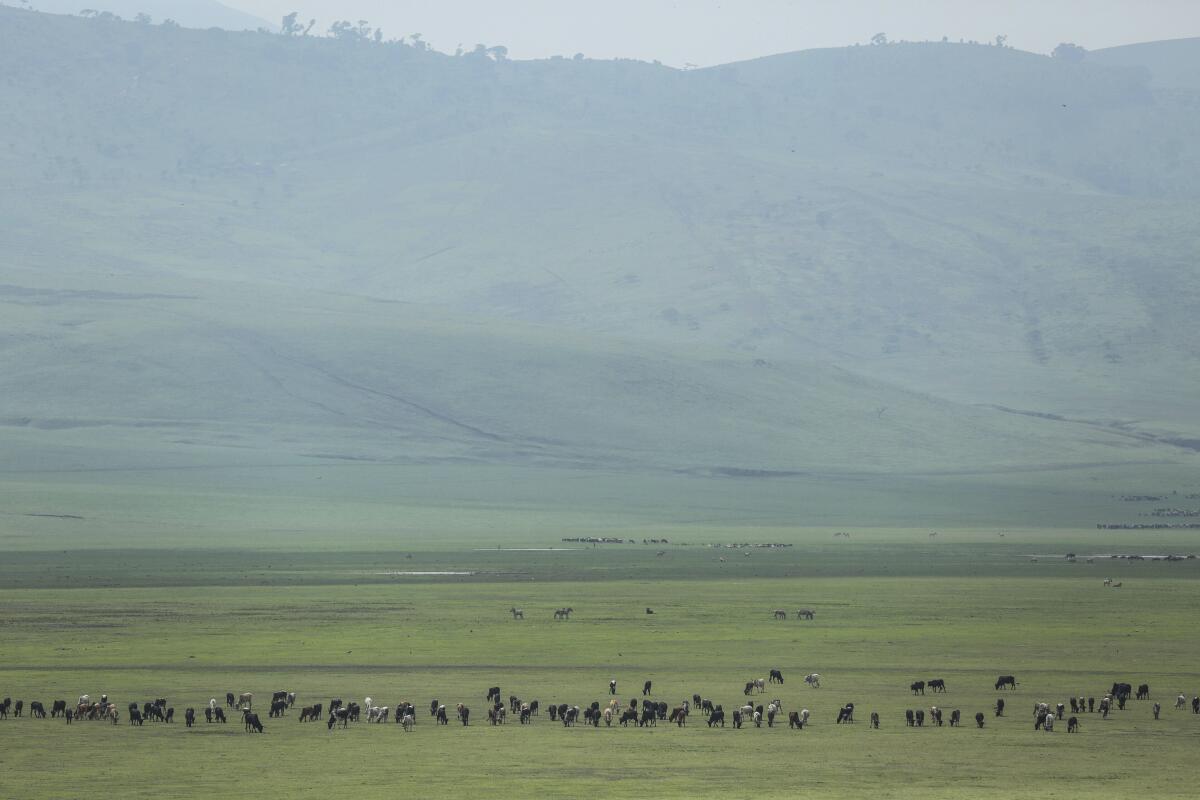Tanzania squeezes Maasai herders by seizing livestock, report says

- Share via
MOMBASA, Kenya — The Tanzanian government is seizing livestock from Indigenous Maasai herders in the Ngorongoro Conservation Area in its latest attempt to clear the way for tourism and trophy hunting, a report released this week said.
The update Thursday from the Oakland Institute, a U.S.-based environmental think tank, found that the government forcefully confiscated some 5,880 cattle and 767 goats and sheep from the Maasai in November and December and is demanding that owners pay heavy fines.
Those failing to pay have their livestock auctioned and moved away.
“Livestock is central to the Maasai culture and livelihoods,” Anuradha Mittal, the institute’s executive director, told the Associated Press.
“Losing cattle is therefore catastrophic for them. With this new tactic the government’s goal is clearly to drive them away from their ancestral lands.”
The government has remained adamant that the relocations will pave the way for safari tourism, conservation and trophy hunting for lions, elephants and other famous large species, aiding the country’s environment and economic development. It termed the Maasai’s displacement “voluntary,” adding that it would suit the lives of the semi-nomadic pastoralists.
But Mittal said the government’s assertions that the relocations would better the lives of the Maasai are “a blatant lie.”
He added that the government “continues to prioritize tourism revenues over everything else, including lives.”
Previously the government has been accused of denying access to essential health services, grazing lands, water points and salt licks to compel the Maasai to move out of the area.
Salangat Marko, a herder from Ololosokwan village in Loliondo where pastures are being cleared, is worried for the future of his family.
“We are in a bowl of economic suicide,” he said. “A community depending on livestock without grazing land. I have cows with no grass and water. Herders intimidated and beaten. ... Where do we go and what do we feed our children?”
The Ngorongoro Conservation Area is a UNESCO World Heritage site. The Maasai villages occupy a small fraction of the site, within the Loliondo commune.
In June the Tanzanian government was accused of using violence against Maasai people protesting their eviction, attracting heavy international criticism. But Maasais suffered a setback when a regional court ruled in favor of the evictions.
The African Commission on Human and Peoples’ Rights, normally based in Gambia, is currently in Tanzania to seek information on the human rights situation for Indigenous people in the Loliondo and Ngorongoro areas.
Several Tanzanian human rights agencies have urged the commission to be impartial and organize confidential private hearing sessions with victims of the displacement and civil society organizations well away from ongoing state-sponsored efforts.
More to Read
Sign up for Essential California
The most important California stories and recommendations in your inbox every morning.
You may occasionally receive promotional content from the Los Angeles Times.










